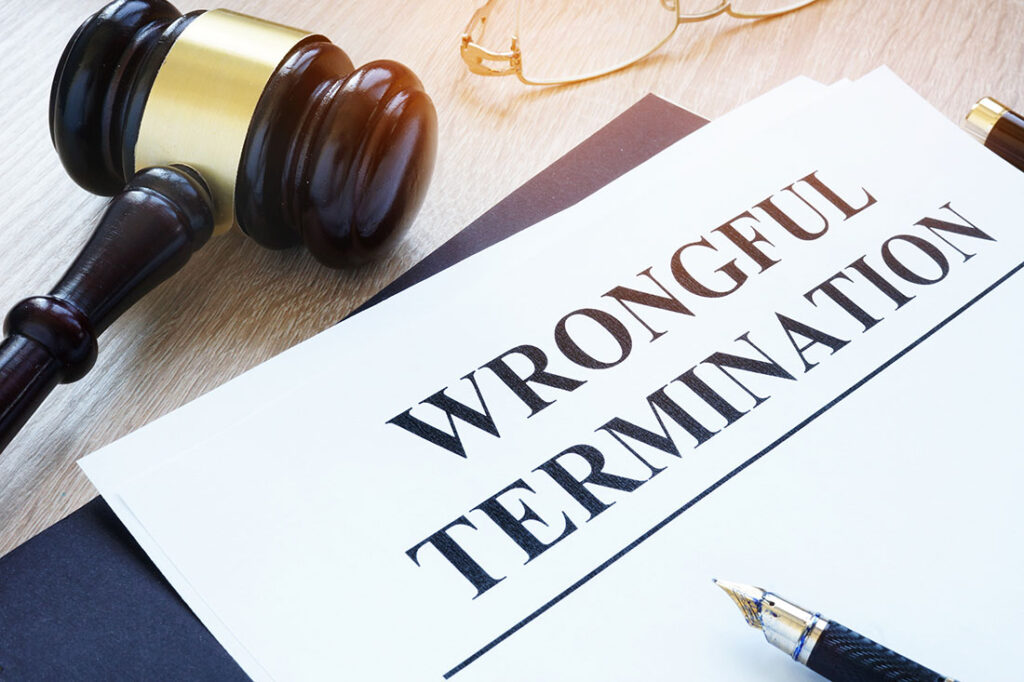In an industry where high employee turnover is normal, how can a company protect themselves from wrongful termination lawsuits? Over the past decade, the number of employees alleging claims such as wrongful termination, discrimination, sexual harassment and retaliation has increased exponentially. Employees’ willingness to sue has been further compounded by the fact that settlements and judgments in these suits average a six-figure dollar amount.
Examples of some typical EPLI (Employment Practices Liability Insurance) claims could include:
- A company begins to experience financial problems and as a result decides to downsize. The president writes a memo to the board stating that senior personnel should be terminated in order to make room for young, energetic people who do more work at a lower salary level. The 50-year-old operations officer, a 15-year employee, runs across the memo prior to leaving. He sues for violations of the Age Discrimination in Employment Act seeking back pay, lost benefits, attorneys’ fees, compensatory damages.
- A security firm is providing services at a small bank. The officer begins begins interacting with a teller during his shift, telling jokes and making small talk. Eventually the officer crosses the line and makes some suggestive comments to the teller. The teller files suit against the security company and the officer for harassment and infliction of emotional distress.
These employment practices claims, which range in scope and size, have been further compounded by a few additional factors:
- Plaintiff attorney’s eagerness to sue employers for employment-related issues
- Recent changes to workplace laws have expanded employees’ rights, opening new and creative ways to bring “causes of action” against their employer
- Third-party claims brought by customers and consumers asserting discrimination or harassment
- Recent economic conditions have lead to high rates of unemployment. This leads recently terminated workers to look for an “easy out”.
It is for these reasons and more that a private security firm should consider protecting themselves with an Employment Practices Liability Insurance (EPLI) policy. In today’s litigious environment, merely complying with employment laws, committing resources to employee training, and documenting will not eliminate financial consequences. Even in instances where the employer has done nothing wrong, the cost to defend themselves from such claims can routinely exceed $100,000.
EPLI policies can vary from carrier to carrier and there a number of factors that should be discussed with your insurance broker prior to making a decision on such coverage. Specifically with regards to the security industry, some exposures are more prevalent and it is essential that they be covered by the policy. For one, many policies exclude independent contractors, part-time, temporary, or seasonal employees. Since it is a very common practice in the security profession to hire such employees, policies should be examined to ensure that these individuals are included.
Protect Your Company From Third-Party Lawsuits
Additionally, the overwhelming majority of security officers spend their day largely unsupervised. Their time may be spent interacting with your client’s employees or the “general public”. As noted earlier, third-party claims against a corporation are on the rise, and their inclusion on your policy is vital. Since EPLI policies are traditionally not written with third-party coverage, open dialogue with your insurance professional is key.
In conclusion, an EPLI policy can protect a security company (and its owners) from claims of discrimination, sexual harassment, wrongful termination, and breach of employment contracts. Though many of these claims may prove to be frivolous, the cost to defend and the time required defending such a claim makes this something every company owner should consider to protect themselves and their livelihood.






